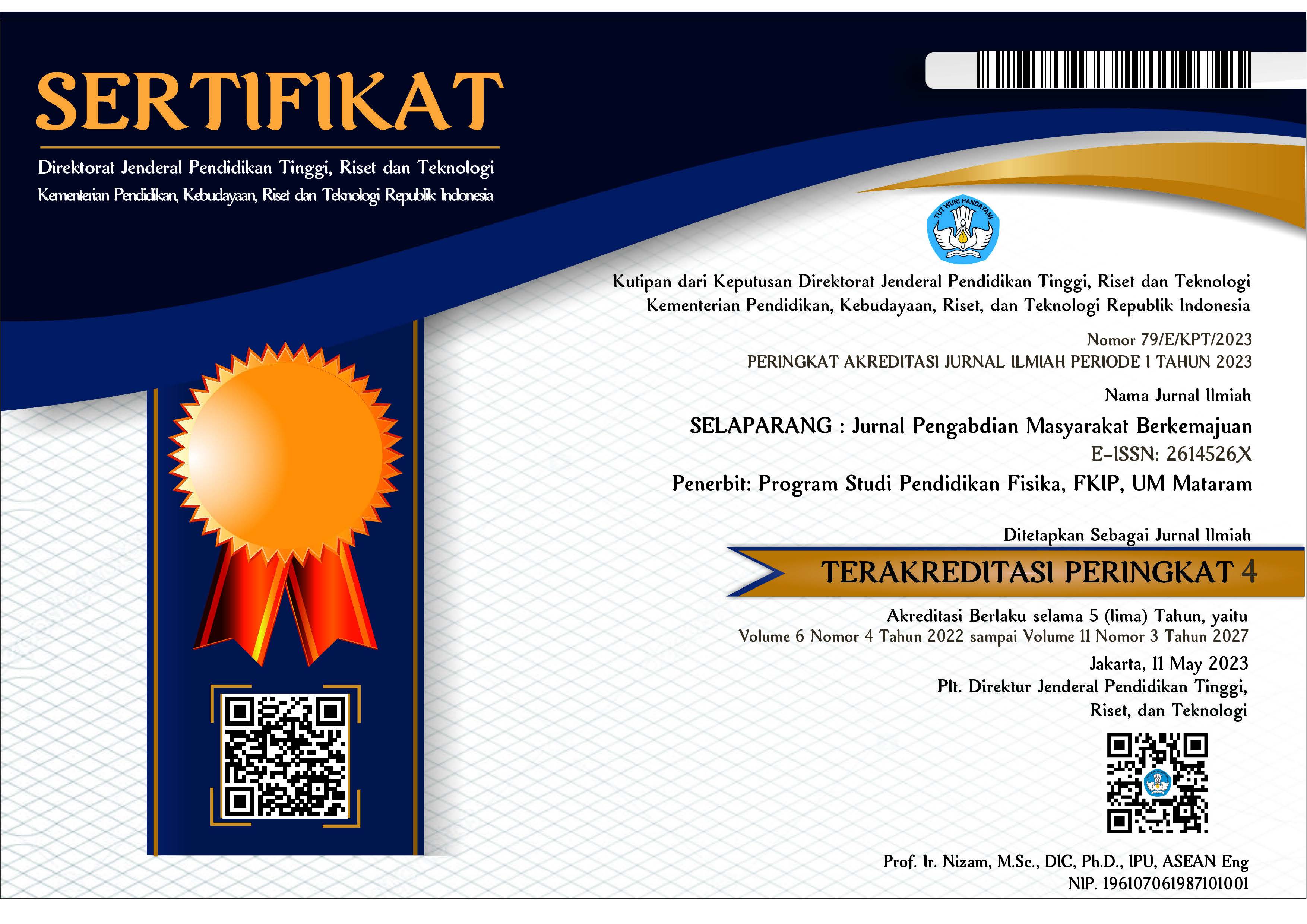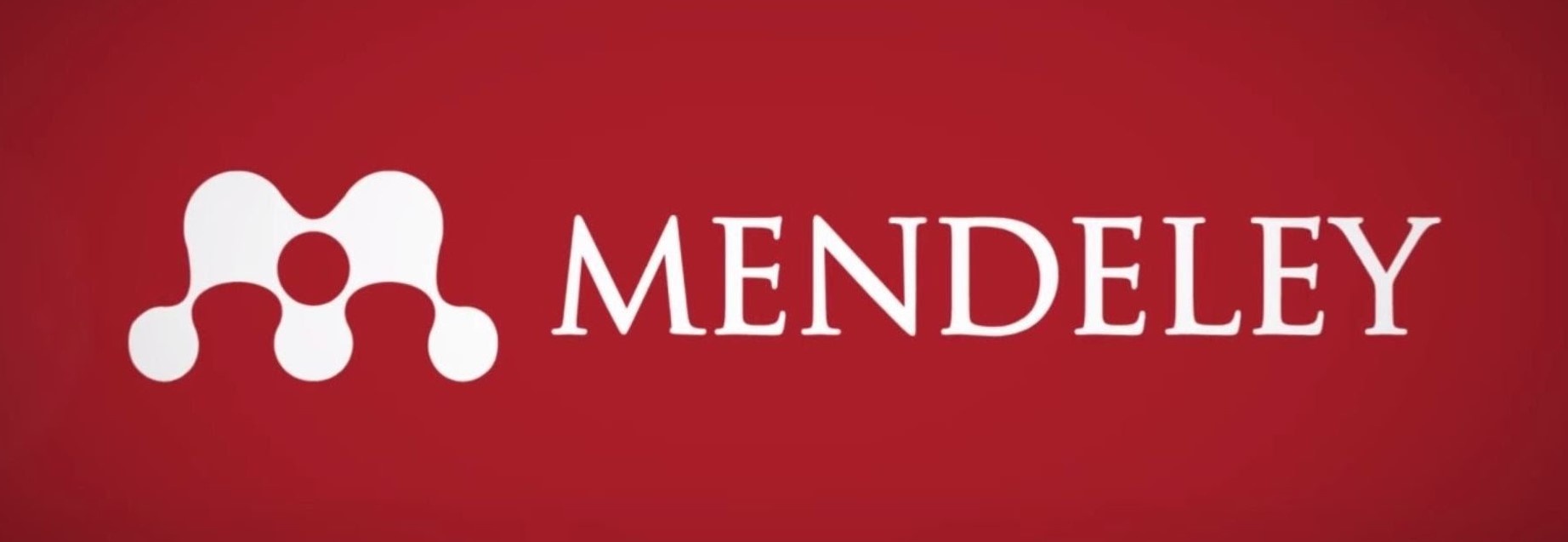Breastfeeding class dalam meningkatkan asi eksklusif
Abstract
Abstrak
Menyusui sebagai masalah kesehatan masyarakat yang penting dengan implikasi sosial dan ekonomi yang sangat besar. Bayi yang tidak menerima ASI cenderung mengalami kesehatan yang lebih buruk daripada bayi yang menyusu ASI, ibu yang tidak menyusui meningkatkan risiko kesehatan. Tujuan pengabdian ini memperkenalkan Breastfeeding Class Sebagai sehingga meningkatkan pengetahuan tentang ASI Eksklusif ASI Eksklusif. Metode pelaksanaan pengabdian ini mengadopsi langkah-langkah action research yang terdiri dari 4 (empat) tahapan, yaitu: perencanaan, tindakan, observasi dan evaluasi, dan refleksi, peserta pengabdian adalah 10 ibu menyusui bayi 0-5 bulan, kegiatan pengabdian meliputi: melakukan pemeriksaan tekanan darah, pengkajian efikasi diri menyusui melalui form Breastfeeding Self Efficacy (BSE-SF), edukasi tentang ASI eksklusif dan simulasi gerakan pijat laktasi. Berdasarkan hasil pengabdian mayoritas memiliki anak 1 atau paritas primipara berjumlah 5 (50%), mayoritas Pendidikan sekolah sedang berjumlah 8 (80%), dan mayoritas ibu tidak bekerja berjumlah 9 (90%). Sebelum diberikan penyuluhan rata-rata skor pretest 10 ibu nifas yaitu 63%, dan setelah diberikan penyuluhan hasil postest rata-rata pengetahuan ibu nifas yaitu 82%, menunjukkan ada peningkatan pengetahuan setelah diberikan penyuluhan tentang ASI eksklusif. Berdasarkan hasil pemeriksaan kesehatan fisik didapatkan tekanan darah 10 ibu dalam batas normal dan Efikasi menyusui melalui intrumen Breastfeeding Self Efficacy Short form (BSE-SF) didapatkan 10 ibu memiliki efikasi meyusui yang tinggi
Kata kunci: pengabdian; ibu nifas; efikasi menyusui; breasfeeding self efficacy; menyusui
Abstract
Breastfeeding is a major public health issue with significant social and economic implications. Infants who are not breastfed tend to experience poorer health outcomes compared to those who are, and mothers who do not breastfeed face increased health risks. The purpose of this service is to introduce Breastfeeding Class as a way to increase knowledge about Exclusive Breastfeeding. The implementation method adopted an action research approach consisting of four stages: planning, action, observation and evaluation, and reflection. The participants were 10 breastfeeding mothers with infants aged 0–5 months. The activities included blood pressure checks, assessment of breastfeeding self-efficacy using the Breastfeeding Self-Efficacy Scale–Short Form (BSE-SF), education on exclusive breastfeeding, and a simulation of lactation massage techniques.
Based on the results, the majority of participants were first-time mothers (primiparous), with 5 out of 10 (50%) having one child. Most of the mothers had a moderate level of education (8 participants or 80%) and were unemployed (9 participants or 90%). Before the educational session, the average pretest score among the mothers was 63%. After the session, the average posttest score increased to 82%, indicating an improvement in knowledge about exclusive breastfeeding. Physical health assessments showed that all 10 mothers had normal blood pressure levels. In addition, the results of the Breastfeeding Self-Efficacy Scale–Short Form (BSE-SF) indicated that all 10 mothers had high breastfeeding self-efficacy.
Keywords: community service; postpartum; breastfeeding self-efficacy; breastfeeding
Keywords
Full Text:
PDFReferences
Azad, M.B. et al. (2021) ‘Breastfeeding and the origins of health: Interdisciplinary perspectives and priorities’, Maternal & Child Nutrition, 17(2), p. e13109. Available at: https://doi.org/10.1111/mcn.13109.
Burhan, R. et al. (2023) ‘Comprehensive Breastfeeding Education: An Integration to Support Successful Breastfeeding Practice’, Media Gizi Indonesia, 18(1SP), pp. 46–54. Available at: https://doi.org/10.20473/mgi.v18i1SP.46-54.
Değer, M.S., Sezerol, M.A. and Altaş, Z.M. (2023) ‘Breastfeeding Self-Efficacy, Personal Well-Being and Related Factors in Pregnant Women Living in a District of Istanbul’, Nutrients, 15(21), p. 4541. Available at: https://doi.org/10.3390/nu15214541.
Dunne, S. and Fallon, A. (2020) ‘Public health nurses’ experiences of supporting women to breastfeed in community settings in Ireland’, Journal of Health Visiting, 8(6), pp. 240–246. Available at: https://doi.org/10.12968/johv.2020.8.6.240.
Exclusive breastfeeding for optimal growth, development and health of infants (no date). Available at: https://www.who.int/tools/elena/interventions/exclusive-breastfeeding (Accessed: 2 February 2025).
Farah, E. et al. (2021) ‘Impaired Lactation: Review of Delayed Lactogenesis and Insufficient Lactation’, Journal of Midwifery & Women’s Health, 66(5), pp. 631–640. Available at: https://doi.org/10.1111/jmwh.13274.
Fraser, M. et al. (2020) ‘Important times for breastfeeding support: a qualitative study of mothers’ experiences’, International Journal of Health Promotion and Education [Preprint]. Available at: https://www.tandfonline.com/doi/abs/10.1080/14635240.2019.1676811 (Accessed: 2 February 2025).
Gallegos, D. et al. (2020) ‘Understanding breastfeeding behaviours: a cross-sectional analysis of associated factors in Ireland, the United Kingdom and Australia’, International Breastfeeding Journal, 15(1), p. 103. Available at: https://doi.org/10.1186/s13006-020-00344-2.
Habib, F. et al. (2021) ‘Factors Affecting Mothers’ Self Efficacy and Breastfeeding Practices’, Indonesian Journal of Global Health Research, 3(2), pp. 259–270. Available at: https://doi.org/10.37287/ijghr.v3i2.488.
Kusuma, N.I. and Khofiyah, N. (2022) ‘Practical support for breastfeeding mothers in achieving exclusive breastfeeding: A scoping review’, JKKI : Jurnal Kedokteran dan Kesehatan Indonesia, pp. 308–320. Available at: https://doi.org/10.20885/JKKI.Vol13.Iss3.art11.
Munns, L. et al. (2024) ‘The effects of yoga-based interventions on postnatal mental health and well-being: A systematic review’, Heliyon, 10(3), p. e25455. Available at: https://doi.org/10.1016/j.heliyon.2024.e25455.
Murphy, R. et al. (2022) ‘Women’s experiences of initiating feeding shortly after birth in Ireland: A secondary analysis of quantitative and qualitative data from the National Maternity Experience Survey’, Midwifery, 107, p. 103263. Available at: https://doi.org/10.1016/j.midw.2022.103263.
Nilsson, I.M.S. et al. (2020) ‘The significance of early breastfeeding experiences on breastfeeding self-efficacy one week postpartum’, Maternal & Child Nutrition, 16(3), p. e12986. Available at: https://doi.org/10.1111/mcn.12986.
Theodorah, D.Z. and Mc’Deline, R.N. (2021) ‘“The kind of support that matters to exclusive breastfeeding” a qualitative study’, BMC Pregnancy and Childbirth, 21(1), p. 119. Available at: https://doi.org/10.1186/s12884-021-03590-2.
Tomori, C. et al. (2022) ‘What works to protect, promote and support breastfeeding on a large scale: A review of reviews’, Maternal & Child Nutrition, 18(Suppl 3), p. e13344. Available at: https://doi.org/10.1111/mcn.13344.
UNICEF (2025). Available at: https://www.unicef.org/indonesia/id/gizi/siaran-pers/angka-menyusui-di-indonesia-turun-ibu-memerlukan-dukungan-yang-lebih-mapan (Accessed: 25 February 2025).
Yaumi, Muhammad dan Damopolii, M. (2014) Action Research : Teori, Model, dan Aplikasi. Jakarta: Kencana.
DOI: https://doi.org/10.31764/jpmb.v9i4.32200
Refbacks
- There are currently no refbacks.

This work is licensed under a Creative Commons Attribution-ShareAlike 4.0 International License.
______________________________________________________
Jurnal Selaparang
p-ISSN 2614-5251 || e-ISSN 2614-526X
EDITORIAL OFFICE:



















